Regulations
LG Energy vows to get tough on battery patent infringement cases
LG says lawsuits are a strong option and is also considering licensing out its tech to latecomers
By Apr 24, 2024 (Gmt+09:00)
4
Min read
Most Read
LG Chem to sell water filter business to Glenwood PE for $692 million


KT&G eyes overseas M&A after rejecting activist fund's offer


Kyobo Life poised to buy Japan’s SBI Group-owned savings bank


StockX in merger talks with Naver’s online reseller Kream


Meritz backs half of ex-manager’s $210 mn hedge fund


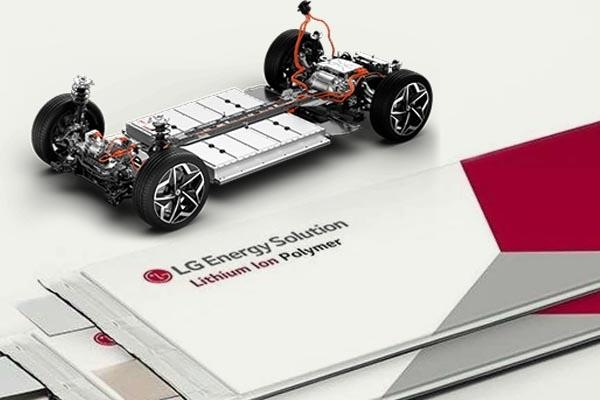
LG Energy Solution Ltd., the world’s second-largest battery maker in terms of sales after China’s CATL, said on Wednesday it will take stern action, including lawsuits, against infringement cases of its battery-related patents.
The South Korean company also said it aims to establish a global battery patent pool so that patent holders can license out their patented technologies to latecomers to ensure fair competition in the battery industry.
LG said it is witnessing a rising tide of “latecomers’ deliberate and blatant unauthorized use of its patents” across a wide range of commercialized products, including batteries for consumer electronics, energy storage systems (ESS) and electric vehicles (EVs).
“Respecting intellectual property rights is essential for fostering fair competition in the global market. To ensure the advancement of the overall industry and the company, we will protect our intellectual properties and take bold countermeasures on patent infringement,” said LG Energy Chief Executive Kim Dong-myung. “As an industry leader, we will also lead in the establishment of a legitimate battery patent licensing market.”
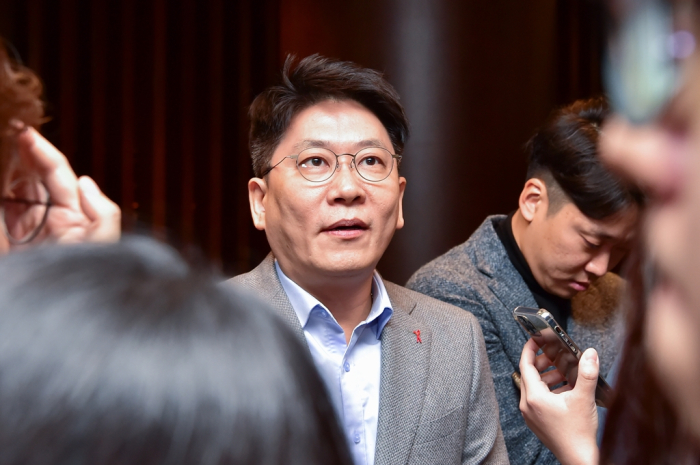
LG Energy has taken “significant” measures to protect its intellectual property (IP), including filing successful trade secret misappropriation and patent infringement lawsuits, against its competitors with the US International Trade Commission (ITC) and courts in Germany and other countries.
Nevertheless, its patent rights are continuously being violated by “patent free-riders” who reap the benefits of LG Energy Solution’s and other market leaders’ R&D and proprietary rights, the company said.
“Such widespread disregard has led to severe market distortions, prompting industry leaders like LG to take action and adopt stronger countermeasures,” it said.
LG said a review of its patent portfolio found some 1,000 of its patents are “strategic patents,” or those vulnerable to infringement. About 580 of them have already been infringed upon by competing battery makers, it said.
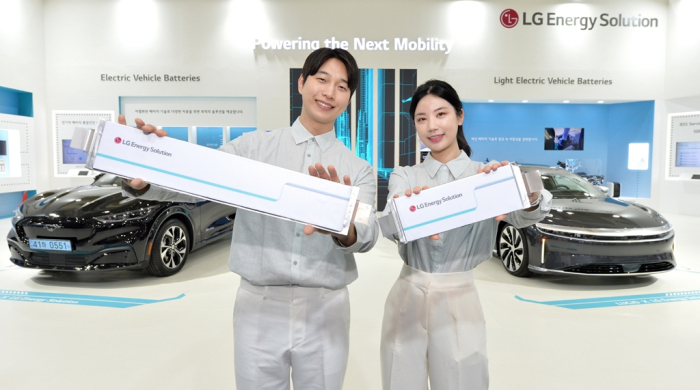
“We’re looking at all options, including issuing warnings or filing patent infringement lawsuits,” the company said in a statement.
EXAMPLES
LG said the risk of patent infringement by latecomers extends to its next-generation battery technologies, including the dry coating process, an environmentally friendly and price-competitive technology that does not use organic solvents, and the next-generation cylindrical 46-series battery technology.
Without identifying the company names involved, LG gave some examples of infringement cases concerning its battery patents.
After only a preliminary review of competitors’ EV batteries, LG Energy said it has found manufacturers violated more than 30 of its patents covering major components and manufacturing technologies, including coated separators, cathode materials, battery cell structures and electrodes.
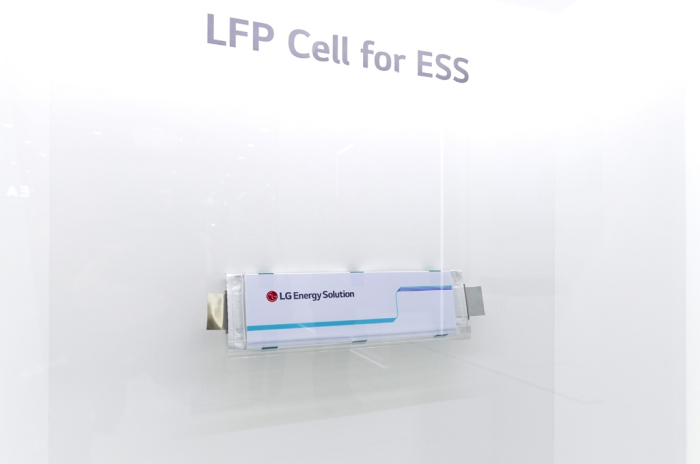
LG said its investigation into laptops and cellphones powered by these batteries and sold in Europe and China found more than 50 potential instances of unauthorized use of its patents on technologies, including coated separators, cathode materials and electrolyte additives.
“To safeguard our technological leadership and promote collective growth in the industry, we will take strict measures against unlawful infringement,” said Lee Han-sun, head of LG Energy’s IP Center.
LG said it has filed more than 58,000 patent applications worldwide and secured more than 30,000 issued patents.
LICENSING OUT BATTERY TECH
LG said it is considering utilizing various patent monetization models such as patent pooling or sales to protect its innovative technologies.
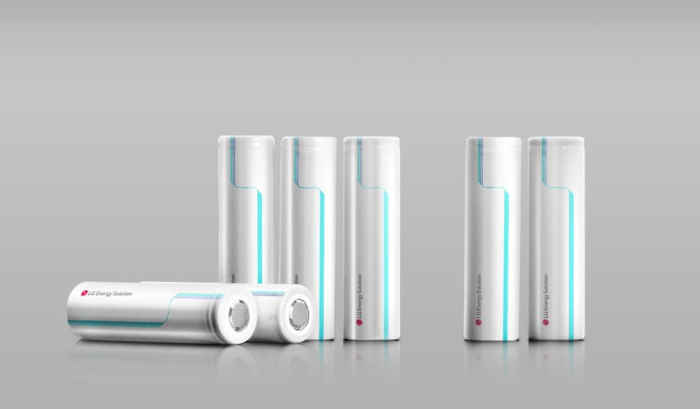
The company will form a global patent pool using its patents that are currently believed to be infringed upon by commercialized products in the market, and then efficiently manage its licensing activities by licensing out key patent portfolios in phases, according to LG.
“Such fair licensing would lead to a virtuous cycle as leading players will be able to utilize their royalty proceeds to increase investments in new technologies while latecomers could further enhance their product competitiveness by adopting advanced technologies through licensed use,” LG said.
LG Energy said it will enhance its global litigation capabilities by securing experts in major markets such as the US, Europe and China. At the same time, it will expand and invest in its regional IP offices abroad.
According to market researcher SNE Research, the global battery market grew 25 times from 28 gigawatt hours (GWh) in 2015 to 706GWh in 2023. The market is forecast to reach 5,256 GWh by 2035, it said.
Write to Sang-Hoon Sung at uphoon@hankyung.com
In-Soo Nam edited this article.
More to Read
-
 BatteriesLG Energy, GM’s 2nd Ultium Cells plant begins production in Tennessee
BatteriesLG Energy, GM’s 2nd Ultium Cells plant begins production in TennesseeApr 02, 2024 (Gmt+09:00)
2 Min read -
 RegulationsSamsung faces dubious suit every 5 days from US patent trolls
RegulationsSamsung faces dubious suit every 5 days from US patent trollsMar 18, 2024 (Gmt+09:00)
4 Min read -
 RegulationsSeoul Semiconductor sues Amazon Europe for LED patent infringement
RegulationsSeoul Semiconductor sues Amazon Europe for LED patent infringementMar 05, 2024 (Gmt+09:00)
3 Min read -
 BatteriesLG Energy to produce 4680 batteries in August for Tesla, others: CEO
BatteriesLG Energy to produce 4680 batteries in August for Tesla, others: CEOFeb 15, 2024 (Gmt+09:00)
4 Min read -
 BatteriesLG Energy to supply $748 million worth of batteries to Japan’s Isuzu Motors
BatteriesLG Energy to supply $748 million worth of batteries to Japan’s Isuzu MotorsJan 26, 2024 (Gmt+09:00)
1 Min read
Comment 0
LOG IN


